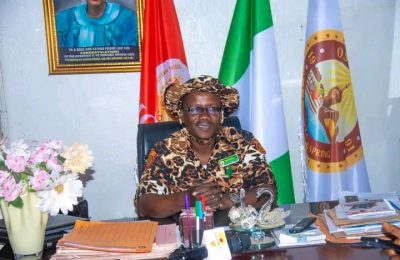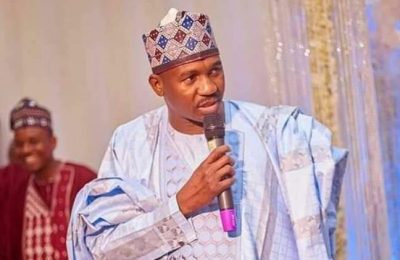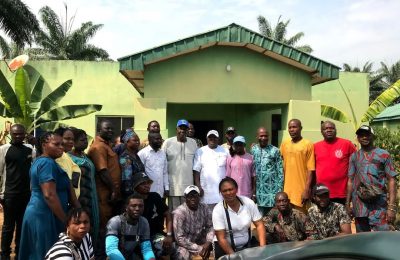AN election is a decision making process where groups choose representatives to hold public offices. It is often assumed that the process will select an appropriate personality that fits perfectly into the role, a person of a high moral rectitude that can enforce the law and maintain orderliness in the society. This is always not the case because a political party may produce a candidate that is mediocre with little relevant experience in governance and a poor knowledge of economic growth and development. The danger is that the voting public might as well go ahead and saddle the mediocre with the responsibility of allocating and distributing meager state resources among the major components of the entire state economy at a detriment of sub-national components of the state.
The subject of this discussion is concerned with what motivates an individual as regards decision making in an electoral process, particularly in the choice of a public leader. Reference may be made to the layman’s image of selecting or electing a political leader in an advanced and cosmopolitan clime as against a traditional locality such as Osun State where parochial sentiments of sub-ethnicity and religion might be more important than any other factor. The fact of the matter still remains that the average electorate in Osun State is so conscious of the person they are familiar with, accessible to and who comes from their own immediate community; ‘Omowani, e je ko se’. There is no doubt that it is this high level of nepotism of ‘West ‘lo kan’ (Osun West’s Time) that birthed the dancing government that is the order of the day.
Zoning is rearing its ugly head in the governorship election within APC in the 2026 election, again. Tribune online on November 3rd quoted a chieftain of the All Progressives Congress (APC) in Osun, Prince Oladele Oyelude as advising the leadership of the party not to zone the governorship ticket to any particular zone but, “instead look for a credible candidate that would be acceptable to the electorates from any zone in the 2026, governorship election”. On 17th November however, Hon Sunday Akere countered his position by asserting that should former Governor Isiaka Oyetola decide not to seek a second term, it will be fair that “the APC will focus more on the West senatorial district for its candidate”. Two days later, the party said in a statement by its Media and Information Director, Chief Kola Olabisi, that no position had been taken on the zoning of the 2026 ticket and that the decision on where its next governorship candidate would come from would be made public to all stakeholders of the party.
In a nutshell, there is conflict among the party members on the issue of zoning. Apart from the various agitations of communities claiming a right of turn to governorship, it is significant to note that the extent of political participation of certain individuals and groups in electioneering depends on personal interest. In the words of David Easton, “Every society provides some mechanism to allocate and resolve issues”, however rudimentary they may be. Osun APC Leaders like Chief Bisi Akande, Alhaji Oyetola, the entirety of Agba Osun of the party as well as the State Party Executive should be able to resolve the zoning debacle through a laid down framework.
Zoning arrangement is not discussed by political parties online or on the pages of newspapers because the discussion will ostracize some communities from fair participation and may become a negative factor during electioneering. The issues of the 2026 APC governorship candidate should be a strategic decision borne out of data and figures of past election results, core APC Osun strong areas of influence and the focal community that has a presentable aspirant and enough votes to swing majority votes for the party candidate. APC must not be put under undue pressure by individuals or groups who seek to benefit from the candidacy of target individuals. What value do we gain by zoning the governorship ticket of the party to Osun West if our party cannot muster enough votes that will defray the deficit that will traditionally and automatically accrue from the local area of the sitting Governor.
Statistically, the results of previous gubernatorial election (Osun State 2022 governorship election) will be analyzed based on federal constituency of likely contestants that might be interested to seek the APC gubernatorial nomination such as: Sen. Babajide Omoworare, Ife federal constituency; Alhaji Bola Oyebamiji, Irewole federal constituency; Sen. Ajibola Bashir, Osogbo federal constituency; Iwo federal constituency and Ede federal constituency for proper understanding of the past election behavioral pattern, in order to make objective decision towards the selection of the best candidate that has better chance of winning the general election for APC. Ila, Ifelodun, Ijesa North and Ijesa South federal constituencies are not being analyzed for the purpose of this article.
However, we should bear in mind that APC won Ifelodun federal constituency (Ifelodun,Boripe and Odo-Otin LGs) having won Boripe LG by a margin of 13,610 votes (Gov. Oyetola is from Boripe LG). APC lost Ila, Ijesa North and Ijesa South federal constituencies.
Any serious political strategist must first agree that APC must find an answer to the consistent and directional votes from Ede North LG and Ede South LG where Peoples Democratic Party (PDP) won with a margin of 28,762 votes (about 14,000 votes margin each). PDP also won EjigboLG with 3,710 votes and EgbedoreLG with 4,002 votes to sweep Ede federal constituency with a total of 74,664 votes, with a margin of 36,474 votes out of 113, 291 total votes cast.
APC won all the three LGsin Iwo federal constituency with a margin of 1,918 in Aiyedire LG, 466 in Olaoluwa LG and 507 in Iwo LG (and a total margin of 2,891 votes). Iwofederal constituency had a total of 67,784 votes of which APC had 34,412 votes. The same applied to Irewolefederal constituency where APC led with a margin of 5,185 votes. The breakdown – 56 votes in Isokan LG, 1,147 votes in Ayedaade LG and 3,982 in Irewole LG. APC secured 43,558 votes out of a total of 82,390 votes cast in the Irewole federal constituency.
The total votes cast in Osogbo federal constituency is 143,047 votes. APC lost all the four LGs of Olorunda, Osogbo, Orolu and Irepodun with a margin of 12,691 votes. APC had 63,711 votes while PDP had 76,403 votes.
A total of 111,683 votes were recorded in Ife federal constituency out of which APC earned 59,678 votes to lead PDP with a margin of 8,600 votes. APC won Ife Central LG with 4,348 votes, Ife East LG with 1,282 votes and Ife South LG with 3,365 votes, but lost Ife North LG with 395 votes.
From the results analyzed above, it shows clearly that both Iwo and Irewolefederal constituencies from Osun West Senatorial District do not have the voting capacity to neutralize the voting strength of Ede federal constituency in terms of numerical figures. APC won in the six LGs of the two federal constituencies with a total victory margin of 8,078 votes, but this figure is a far lower figure to the 36,474 votes that was our deficit from Ede federal constituency.
Osogbo federal constituency that has Osun State’s largest voting strength was lost to the PDP candidate during the analyzed results of the 2022 governorship election with a margin of 12,691 votes. In the 2023 presidential election, APC won the federal constituency with a margin of 9,850. The analysis of the 2018 governorship election results in Osogbo federal constituency is more disturbing. APC polled 51,592 votes while PDP polled 40,183. The margin was 11,409 but Social Democratic Party (SDP) polled 24,148 and Action Democratic Party(ADP) polled 6,837 votes. Osogbo being the State Capital is cosmopolitan and is inhabited by people from all over the state, especially civil servants. In the last two circles of elections the margin of victory by either APC or PDP in Osogbo federal constituency is an average of 10,000 votes.
In the 2022 governorship election under review, after Osogbo and Ede federal constituencies, Ife federal constituency followed in order of the highest number of votes cast with a total of 111,683 votes. APC defeated PDP with a margin of 8,600 votes in an election in which the deputy governorship candidate of PDP was from Ile-Ife. This feat was surpassed with an increase to 14,620 votes in the 2023 presidential election. Ife land however comes with a different dynamic similar to what the PDP has been able to do in Ede land.History has shown that whenever Ile-Ife is “interested” in an election, it galvanizes sufficient vote margin. In the 2014 governorship election, the Ife-born PDP candidatepolled 68,038 votes to defeat APC with a margin of 28,609 votes from a total of 107,467 votes. Comparatively, it is this type of turnover that could adequately challenge the 74,664 votes with a margin of 36,474 votes out of total vote cast of 113,291 votes as it happened in Ede federal constituency in 2022. This feat was repeated in Ile-Ife in 2018 during a four contestants’ governorship race to defeat both APC and PDP with over 20,000 votes margin in Ifefederalconstituency.
It is not by coincidence that the Adeleke political family nearly won the 2018 governorship election and eventually became victorious in 2022 but by thoughtful inclination of some political strategists who based their presumption on the voting strength of Ede federal constituency and reducing the APC winning chances at places like Osogbo federal constituency. For APC, it is instructive enough for the party to seek an acceptable candidate that hails from a historical background of bloc votes like Ile-Ife that can neutralize Ede’s voting strength.
The success of APC in 2026 lies in the options it will make and the mistakes it will avoid.








